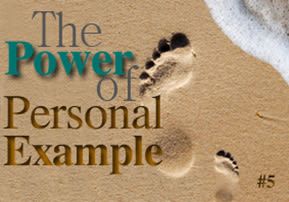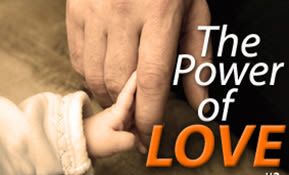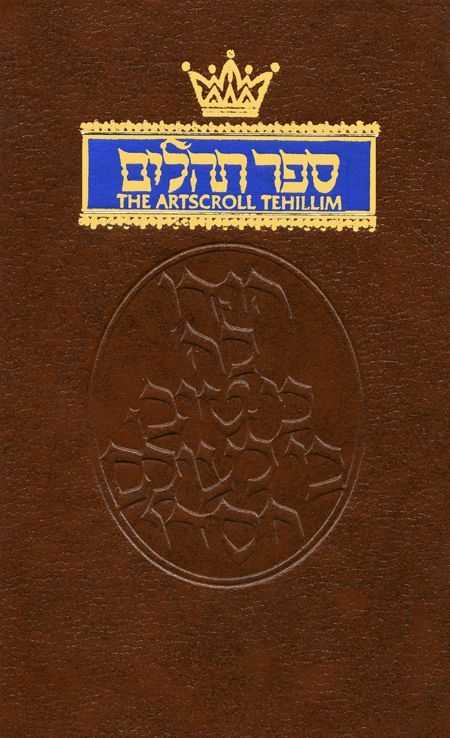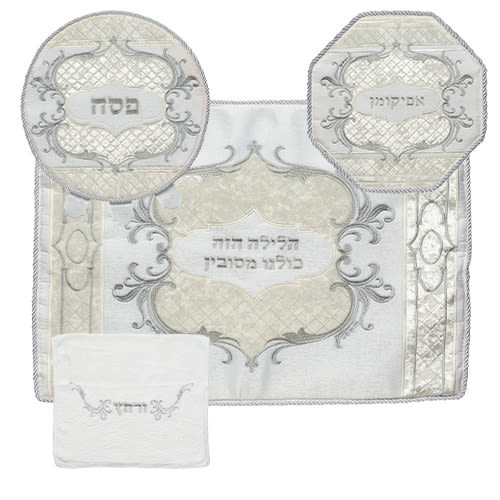
The Power of Personal Example
If a mother’s skirt covers only half the knee, the daughter’s will only cover half the thigh. When parents don't lovingly serve Hashem, the children stray…

Translated by Rabbi Lazer Brody
Education with Love, Part 5
We often see that parents come to synagogue with little children. Often we see two extremes, either the parents try to nail the kids to their seats or else give them free reign to run around and disturb the other congregants. Neither path is correct. The Rambam teaches us to take the middle path. If a child is too young, then it's no mitzvah to bring him to the synagogue. When he's old enough to learn how to pray, the father should both teach and serve as a personal example. Yet, they shouldn't be slave-drivers that give their children threatening looks every time they pick their heads up from the prayerbook. A father should explain to a child the value of prayer. When a child sees how much the father savors prayer, you won't have to nail him to his seat. On Rosh Hashanna in Uman, I see little six year olds sitting in the Kloiz for hours at a time with their fathers. In a place where prayer is the most valued commodity, the kids want to pray too.
Education with love teaches to give, teaches appreciation, teaches how to say thank you. From the youngest age, a child should learn that he or she deserves nothing, and that everything in life – even a glass of water or a slice of bread – is a fabulous gift from Hashem, from Mommy, and from Daddy. They should learn to thank Hashem, Mommy, and Daddy from the moment they learn to talk. In this respect, personal example is the greatest educational force there is.
Once again, even if a family is religious, if they don't serve Hashem with happiness, the children won't want anything to do with the parents’ lifestyle. Educating children with love means showing them that you yourself are happy – happy with your mitzvas, happy with your observance, happy with the Torah. So many parents complain – the high price of yeshivas, the high price of kosher meat, and all kinds of other complaints. Why don't they complain about the high price of the tickets to the Superbowl or the high price of a Caribbean cruise? They're willing to pay through the nose for their fun and appetites, but they begrudge the price of a mitzvah. That's showing a child that the Knicks are more important than Hashem, Heaven forbid.
The Gemorra at the end of tractate Succa tells a hair-raising story about the daughter of a Cohen, a priest in the holy Temple, Martha the daughter of Bilega. She ended up marrying a Roman soldier who took part in the destruction of the Holy Temple. When the Romans penetrated and finally conquered the Temple Mount, Martha went into the Holy of Holies, the chamber of the Tabernacle, and cursed the Holy Name, Heaven forbid. The Gemara asks, how could the daughter of a priest do such a horrendous thing? Our sages explain that she heard her parents belittling the importance of certain rituals. When a parent deviates slightly, a child would deviate in a double measure.
Education with love means a happy personal example – when a child sees that a parent is appreciative of everything Hashem gives, the child will follow suit. When the parents make blessings and pray with fervor and intent, so will the children. But, G-d forbid, when the parents stray in the slightest, the children will go completely haywire. When a mother's vanity is more important than Hashem's commandments, don't expect the daughter to be modest. When a mother’s skirt covers only half the knee, the daughter’s skirt will only cover half the thigh. If a parent doesn't lovingly serve Hashem, they'll be lucky if the child serves Hashem at all.
I can't emphasize enough the importance of teaching kids gratitude, that we deserve nothing, and that we should take nothing for granted. A child that learns to thank Hashem and to thank mommy and daddy will grow up to be an appreciative spouse. Know full well that there's no such thing as an appreciative spouse that doesn't have a happy marriage. Appreciation, being happy with our lot in life, is probably the most important gauge of emuna there is. Some people talk a good game, but when you see a happy person that thanks Hashem for every little thing, that's a person with emuna. Almost always, you'll find that emuna people raise their children in a loving atmosphere of love for Hashem and love for each other.
If you'd like real satisfaction from your children, don't be a drill instructor. The Jewish Home is not basic training or a forced labor camp. Use the principles we spoke about in this series as a guideline, and even if you only implement part of them, you'll see a marked change in your children and in your atmosphere at home. With Hashem's help, educating your children with love will turn your home into a miniature Bet HaMikdash, may we all so merit, amen!













Tell us what you think!
Thank you for your comment!
It will be published after approval by the Editor.